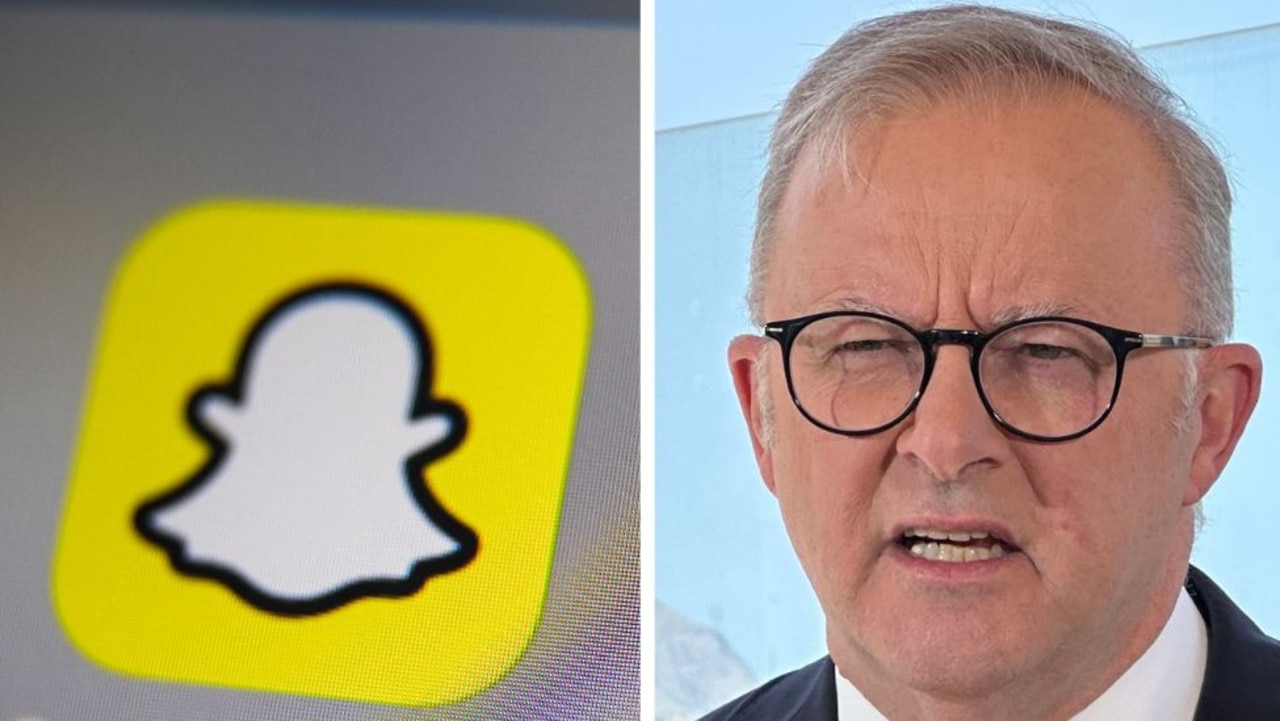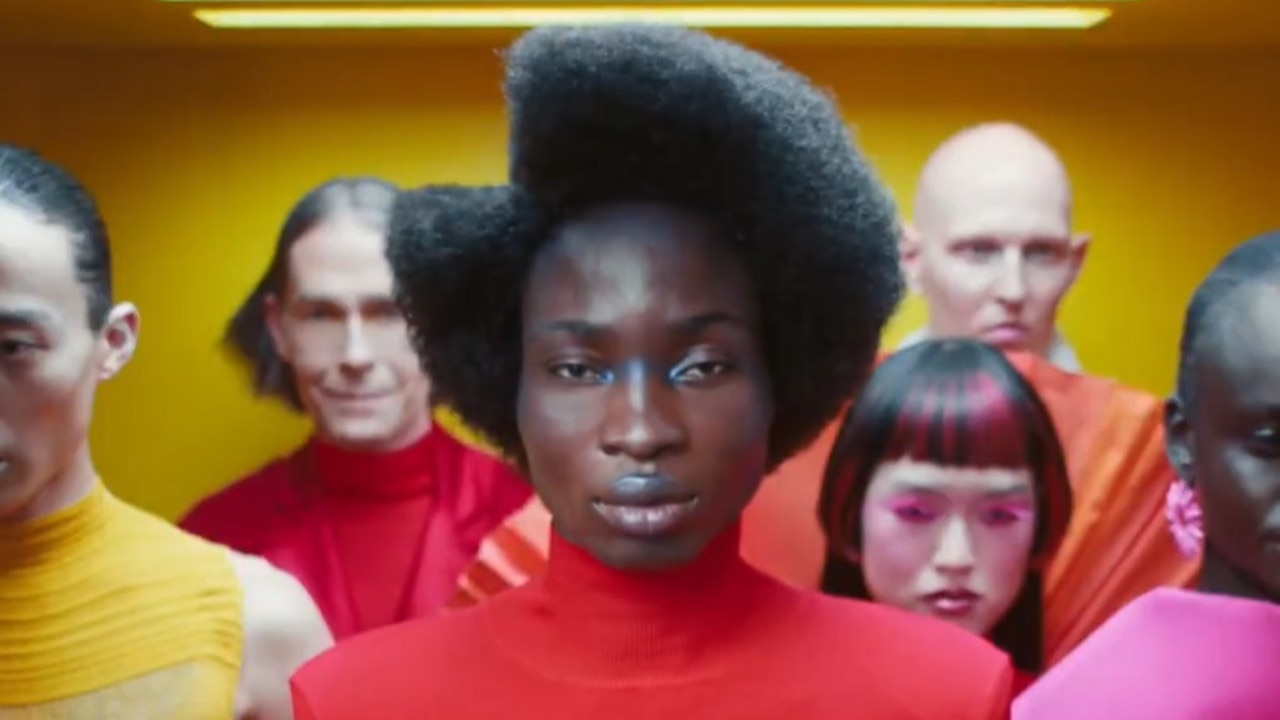Perth biotech company ULUU turning seaweed into version of plastic
It’s not every day that Tame Impala backs your plan to eradicate global plastic pollution and pull carbon out of the atmosphere.
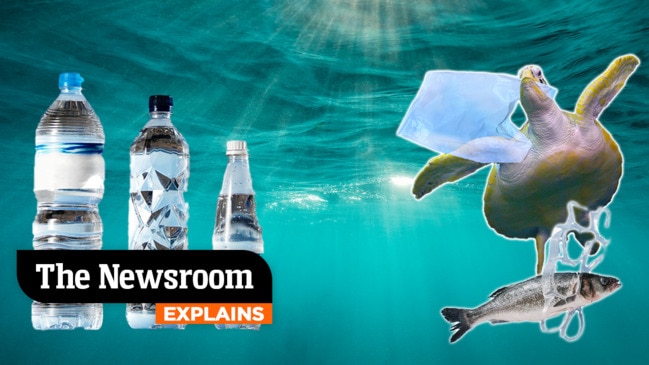
It’s not every day that Tame Impala’s Kevin Parker backs your plan to replace all of the world’s plastics with ocean-derived materials.
Such was the case for Perth biotech start-up ULUU, which recently raised $8.6 million from investors like Parker, supermodel Karlie Kloss, and Australian chef and restaurateur Neil Perry in a bid to eradicate global plastic pollution and pull carbon out of the atmosphere.
Dr Julia Reisser, a marine scientist and ULUU’s co-founder, will appear at the inaugural Vogue Codes Campus.
She will offer a series of thought-provoking panels led by women at the top of their fields — engaging in and exploring the topics of financial literacy and modern financial wellbeing, women in STEM, the world in 2023 and medical advances into the future.
Not only are the presentations about highlighting females in STEM, Dr Reisser told news.com.au, but it’s “a great opportunity to highlight to students, particularly female students, the portfolio of career paths that they can take”.
“As we scale, we have more female CEOs, and I really believe that bringing equality on the executive level of companies is also key to creating a beautiful future,” she said.
The Vogue Codes Campus presentations will be streamed live on Wednesday, August 2.
news.com.au caught up with Dr Reisser about her journey. Here’s what she had to say.
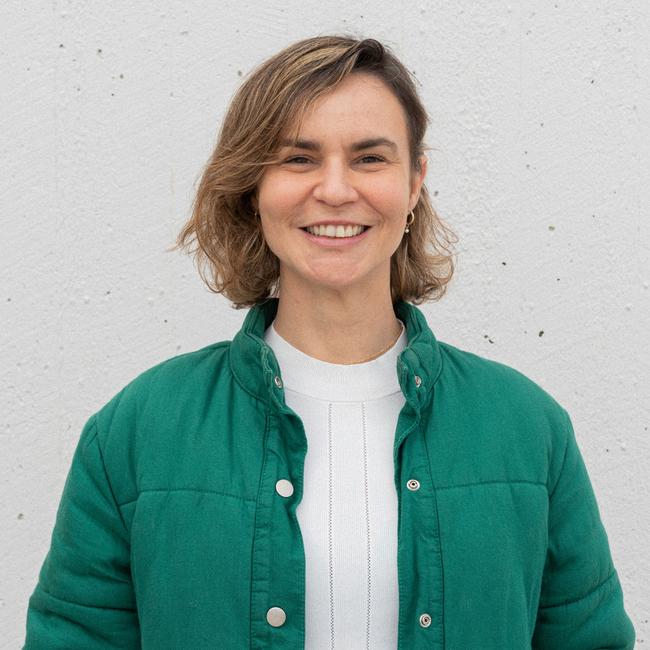
Where did the idea for ULUU come from?
I’m an ocean scientist, so I spent more than a decade obsessed about understanding the problems and potential solutions around tackling plastic pollution.
I realised the more visible impacts first, which are happening in the ocean. But as you dig down into the problem, you see these problems are also happening on land. There’s not only the rubbish: the impact starts during production, because plastic is made of fossil fuel. So it’s really associated with the oil and gas industry, which is something that we want to leave behind due to climate change. Then, during use, our plastic items – such as our food packaging and our clothing – they’re all releasing dangerous microplastics into the air. So the problem is also during use, and then, of course, we have a lot of plastic waste that’s not getting recycled and it’s just building up in the air.
Then I worked a little bit on recycling. When you dip down into the big – both technological and economic – issues associated with recycling, you see that that’s also a part of the solution.
Ocean clean-up is another way of cleaning up the mess.
To stop the mess, I realised that we need to come up with a truly compelling alternative to the plastic – [to] basically stop producing plastic, and replace it with a different material. And to create one, we need to join two things: on the feedstock, replace fossil fuels with something that we want more of in the future, and that’s what’s called farmed seaweed. If we had more seaweed farms at sea, it would clean up the ocean and soak up a lot of carbon pollution, which helps with climate change but also nitrogen pollution, which is a problem that’s been created by sewage and fertiliser.
We actually can scale those seaweed farms to replace all the fossil fuel that we use to produce about 400 tonnes per year of plastic. So on that side of the equation, we know what we need to do – which is develop material with seaweed rather than fossil fuels or length crops, which create deforestation and competition with food prices.
And then on the material side, that was a harder journey. There are many kinds of so-called bioplastics, but the vast majority of them, they are persistent, just like plastic, so you still end up with those microplastics during usage, and they still create a lot of rubbish that cannot be biodegraded by nature. But there is a special group of natural materials called PHAs – like cotton, silk, and wood – that have this superpower of mimicking plastic properties very well.
It’s lightweight, it’s waterproof, you can melt and re-melt. So the material is reusable and recyclable, just like plastic, it protects our food. But at the end of its life, you can also compost it. So it gives us the power to decide – depending on where you’re at in the world and your infrastructure – whether you want to recycle that or just chop it up with your food waste and you can compost it.
So ULUU was born after all this research, and more than a decade of thinking about it, and joining those two things. The idea was kind of formulated back in 2020 and since then, I met my co-founder [Michael Kingsbury] who has a commercial background, and together we started ULUU in early 2021. We actually went to the lab and proved that we could make this plastic alternative with seaweed, and now we have a small pilot facility in Perth that’s producing about a kilo of this material a week.
We are starting our journey to replace plastic with this material which delivers the good things about plastics without doing the bad ones.
Obviously you’ve had a number of quite high-profile investors – Tame Impala’s Kevin Parker, supermodel Karlie Kloss, and chef and restaurateur Neil Perry. What’s it been like to receive that support?
We are very lucky to be backed by fantastic believers that bring funding, but also very good know-how, to the table. Our main investor is the CSIRO’s [venture capital firm] Main Sequence, a fund that invests in biotech start-ups such as ours. They understand the journey, they’re excited about the science, and our values are aligned when it comes to believing that technology can truly help us create a thriving society in the future that is not associated with plastic pollution and climate change.
And then on top of that, we also have some angel investors … One who I’m very excited to have on-board is Kevin Parker, from Tame Impala. It’s very cool to have those guys, because for us to be a successful business, we don’t rely only on creating the material – we need to create an ecosystem around the material that allows us to scale sustainably.
In Australia, we need the deployment of more composting systems, so that every single Australian council has not only the recycling bin and the landfill bin, but a compost bin where we can put our food waste and this new packaging that we’re trying to bring to market.
Having influence at our table can really help, because [these investors] have skin in the game and they’re really passionate about sharing our mission with the public and the governments and other businesses. The power of that is very important for us to ramp up this dream of replacing plastic with a material that’s truly circular.
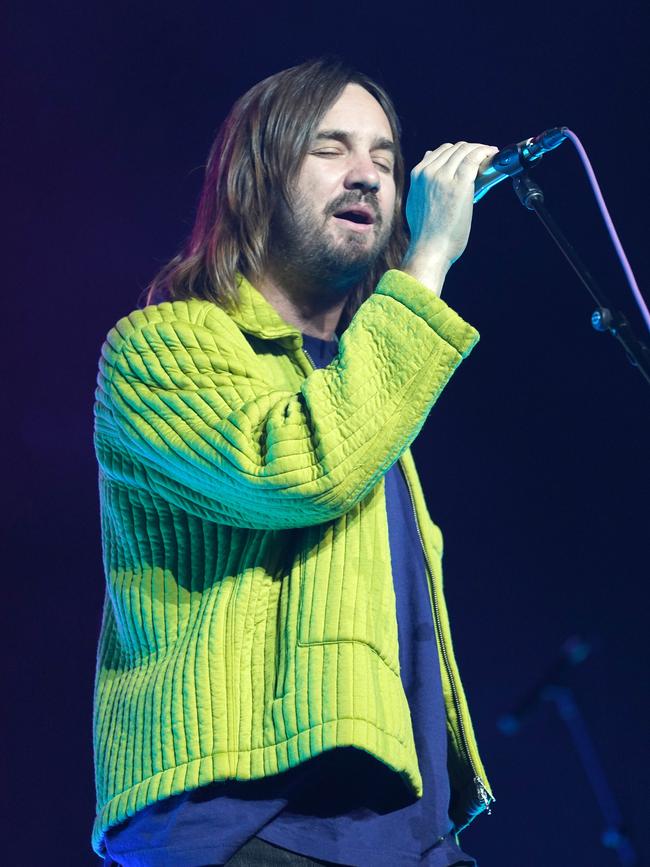
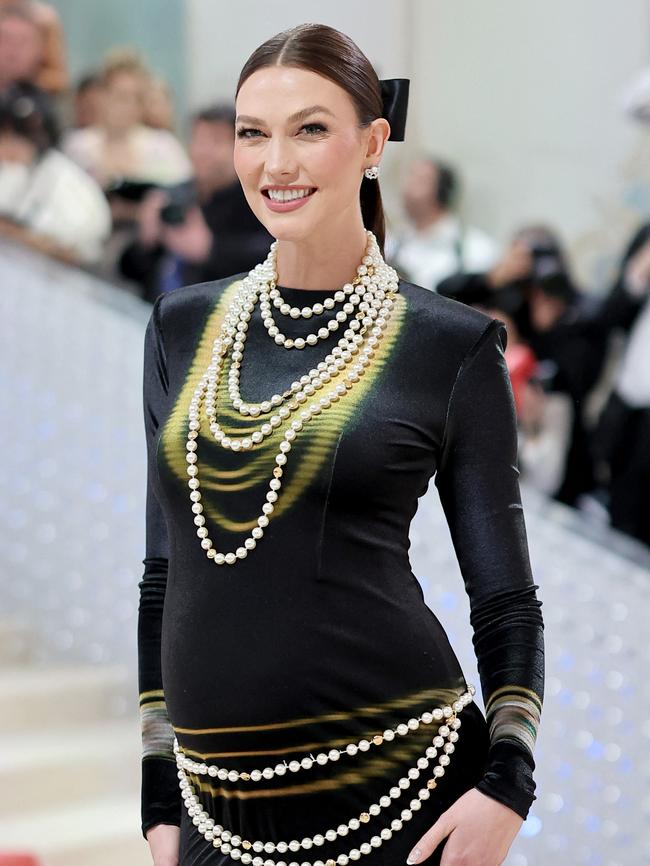
Do you think, as a society, we’re aware of the depth of plastic pollution?
I think we are in a much better place than when I started working in this area.
Back in 2010, for instance, when I was researching plastic pollution, if I’d talk to my friends at the pub about it, they would be like, “What are you talking about? There is no problem, I love my plastic stuff.”
Nowadays, we’re seeing a much larger awareness around this need to replace plastic with a material that delivers what we need out of it, but doesn’t create bad impacts on the planet.
There is still a journey to go, because it’s not that easy to understand the solutions – even myself, as a scientist, it took me a few years to land on something that had the true potential to change the game – but I think it is great, the amount of interest we get from the public, and people from all walks of life. I’m optimistic that we’re learning more and more as a society.
What can everyday people do to contribute to the solution?
Creating this new material is definitely a part of the solution.
But we also need to change some business models, and the way that we behave on an individual level. It doesn’t matter if your packaging is made of plastic or paper or ULUU, we should be wasting less. Everybody can be a bit more clever in how we consume and how we reuse things, and being creative about decreasing the amount of waste you put in your bin – it’s part of the solution.
And then asking the businesses where you shop to be thinking outside the box. Can we go from this linear model to a circular one? So, for instance, is there a world where we can rent a running shoe rather than buy a running shoe. And then when it’s too old or needs fixing, we can just ship the shoe back to our brands that we like that make running shoes and they fix it and resell it and repurpose it.
We need to create a future with better materials, but also with wiser use of those materials -where they remain in the economy as much as possible and then we either recycle or compost it after we’ve truly used it.
Everybody can contribute by just going a bit more circular and demanding businesses and governments to start to think more circular and be creative or not creating so much waste.
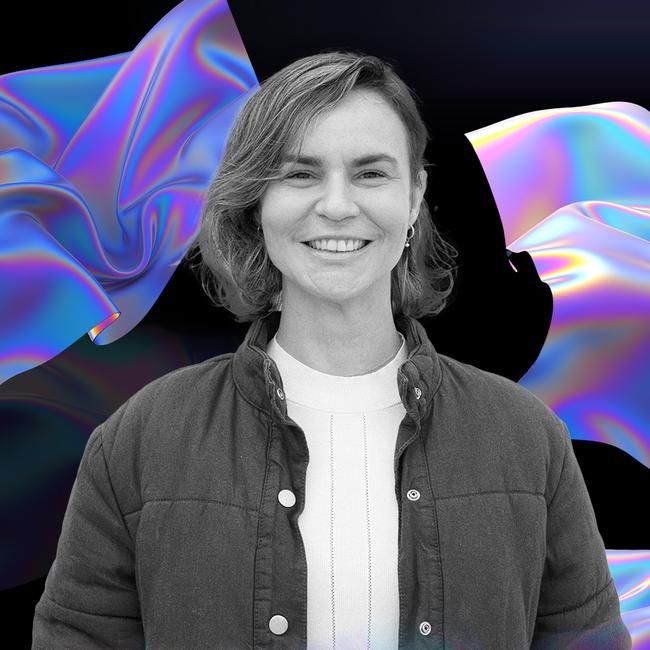
What is your ultimate goal for ULUU? What do you hope to see?
The dream is to have this at scale, where we are accelerating our path towards replacing plastic all the way to 400 million tonnes per year. Maybe I won’t be alive to see it, but my daughter hopefully will.
And while doing that, creating this beautiful network of seaweed farmers on the coastline who are actually farming a crop that cleans up the ocean, boosts ocean health, and is also absorbing a lot of carbon pollution from the environment – so we’re also tackling climate change.
Basically, the future that we’re trying to build is one where plastic is being replaced by ULUU, while we’re tackling both ocean health and climate change – so doing good as we scale.
Vogue Codes Campus will present thought-provoking panels led by women at the top of their fields, engaging in and exploring the topics of financial literacy and modern financial wellbeing, women in STEM, the world in 2023 and medical advances into the future. Campus invites students to explore career opportunities they might have never heard of, and connect them with some of the most influential names in technology, fashion and business.
The Vogue Codes Campus presentations will be streamed live on Wednesday, August 2 here.
Originally published as Perth biotech company ULUU turning seaweed into version of plastic




